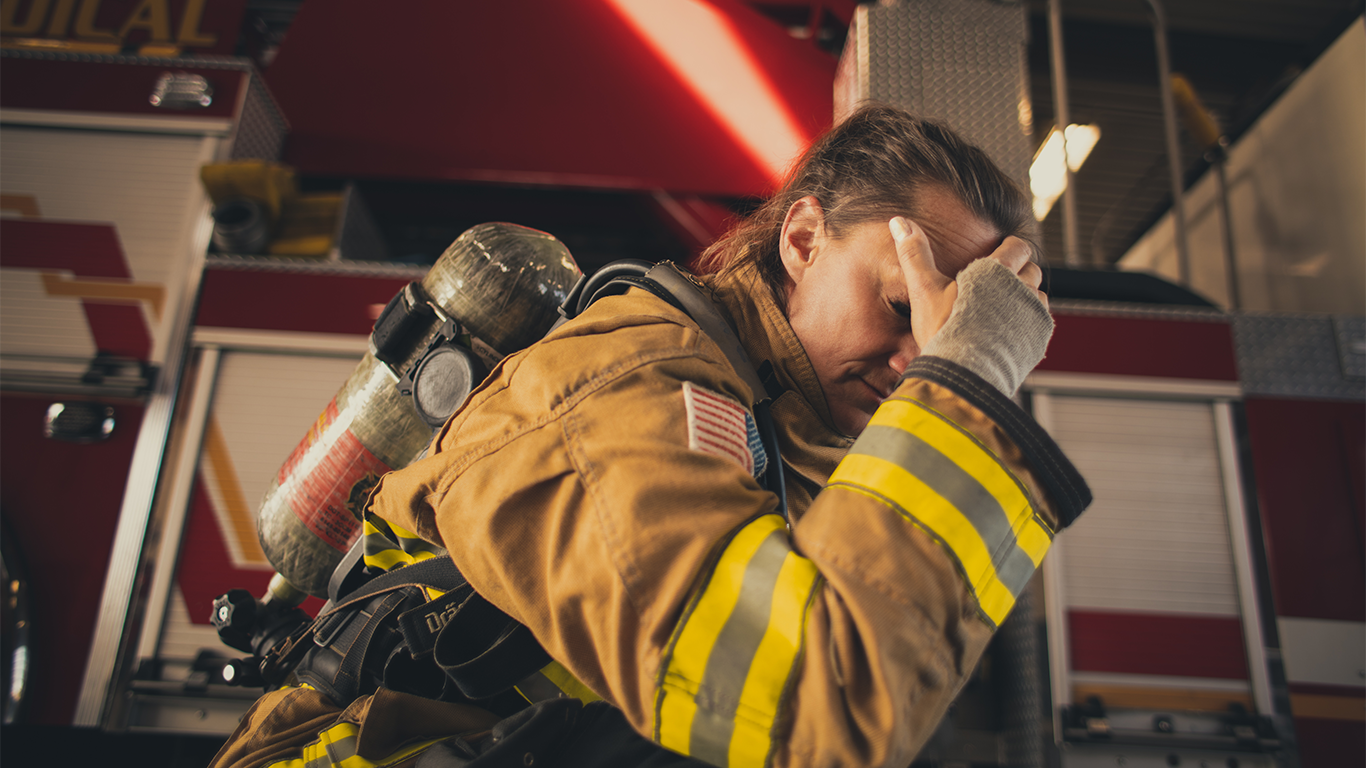Firefighting is one of the most demanding and mentally taxing jobs, as witnessing the loss of loved ones, animals, and homes is an experience like no other. In recent events, 78 Arizona firefighters were dispatched to California to assist in combating the ongoing fires affecting Los Angeles and the surrounding areas. Meanwhile, the month-long battle against the Horton Fire continues in Payson, which has many examining the the mental health effect fighting mass fires has on first responders.
MORE NEWS: The 100 best doctors in Arizona for 2025
The severity of the LA County fires will leave historic and long-lasting mental health effects on all those involved. According to a study conducted by the University of Arizona College of Medicine-Phoenix researchers; paramedics, EMTs, and firefighters in Arizona have a 39% higher rate of suicide than the general public. In Arizona, on average, there are nine paramedic, EMT, and firefighter suicides per year, likely caused by work stress, exposure to trauma, and not wanting to ask for help.
Culture of Resilience

Fire departments, along with many first responder organizations, have long championed a culture of resilience, where hard-working, strong-willed, empathetic, and tough individuals normalize the pressure to always be “on” during a crisis. This culture can inadvertently discourage those secretly struggling with mental health issues from seeking help, fearing it will be seen as a sign that they aren’t strong enough to handle the job.
The reality is first responders are humans and being exposed to traumatic events will inevitably have a negative impact. The demands of firefighting are essential, and it’s vital to cultivate an environment where first responders feel safe with necessary resources accessible.
Silent Struggles and Mental Health Barriers
In Arizona, firefighters endure extreme heat, smoke, injury risks, and the potential for death. They face unique mental health challenges, including PTSD, survivor’s guilt, and reluctance to seek help due to barriers like time constraints, financial issues, and limited awareness.
Tips for Families & Loved Ones
Family and friends of first responders play an important role in supporting their loved ones through mental health struggles. When first responders return home after a long day of traumatic exposure, it’s easy to shut down emotionally and not discuss what they had to endure that day. There are many different ways to cope, however, withdrawing from families and those closest to you is common and as a loved one, understanding how to create a safe space is imperative to alleviate mental distress.
Talk
Make it a routine to discuss how the day was and encourage the first responder to feel safe to talk about how they’re mentally doing and how certain situations made them feel. Let them know it’s okay to talk about their feelings and express themselves in their comfort.
Listen
Let the first responder know they are open and available to discuss their day and feelings freely once they are ready without judgment. It is important to provide emotional space with openness and allow them to process their feelings at their own pace.
Encourage
If there’s any indication they might be in danger, encourage them to seek professional help by assisting with sourcing out the appropriate mental health professional suited for their needs.
Ways to Help
There are many foundations and resources available to help support first responders’ mental health. Stop Our Stigma, or S.O.S. is a nonprofit organization committed to reducing the rate of suicide among paramedics, EMTs, and firefighters by making resources more accessible to first responder organizations through resources at EMSHelp.org along with StopOurStigma.org.
The IAFF Foundation assists IAFF firefighters, emergency medical workers, families, and burn survivors. Additionally, IAFF funds burn survivors, critical behavioral health and occupational cancer programs, as well as immediate disaster relief.
To help California firefighters, cafirefoundation.org provides emotional and financial assistance to families of fallen firefighters.
As the fires continue to blaze, the toll on the mental health of first responders grows. These brave individuals face many traumatic events unlike others ever will in their professional careers. While their sacrifices and contributions to our communities are immeasurable, we must recognize and prioritize their overall well-being. Ensuring first responders have access to mental health resources, a supportive environment, and effective coping mechanisms is invaluable as they continue to risk their lives to help victims of these fires and affected communities.
Author: Dale Crogan is a board member for Stop Our Stigma.




